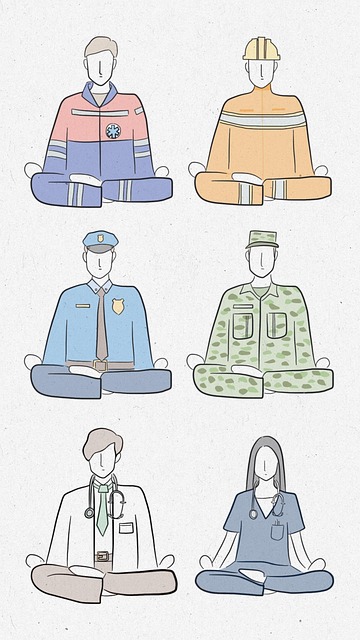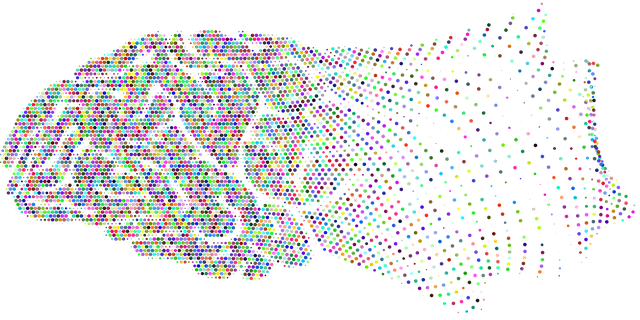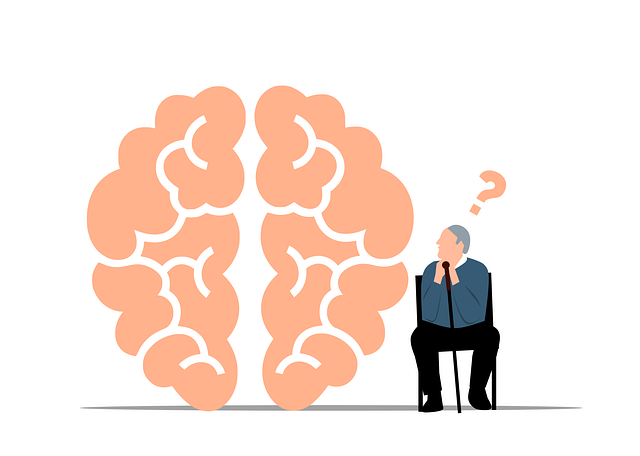Mental health diagnoses in children require specialized approaches, including therapy tailored to conditions like anxiety, depression, or ADHD, and family counseling. Early identification is crucial for holistic well-being. Family counseling addresses the impact of environment on mental state, educates parents, strengthens family bonds, and incorporates Mind Over Matter principles. Therapy options, such as family counseling, backed by organizations offering workshops, equip parents with coping strategies and resilience-building techniques to support emotional healing and enhanced well-being for children and families. Key strategies include therapy for children and family counseling.
Mental illness diagnosis and treatment navigation can be a complex process, especially for children. This comprehensive guide explores crucial aspects of supporting young minds. From understanding mental health diagnoses specific to children, to leveraging family counseling as a potent therapy option, we delve into effective strategies. Additionally, we navigate various therapy resources and provide insights on how families can offer continuous support throughout the treatment journey. By addressing these key areas, including the benefits of family counseling, we aim to empower parents and caregivers in their quest to secure optimal mental health outcomes for their children.
- Understanding Mental Health Diagnoses for Children
- The Role of Family Counseling in Treatment
- Navigating Therapy Options and Resources
- Supporting Children and Families Throughout the Process
Understanding Mental Health Diagnoses for Children

Mental health diagnoses in children often present unique challenges and require specialized approaches. Unlike adults, young individuals may struggle to articulate their feelings or exhibit symptoms differently due to developmental stages. This makes accurate diagnosis crucial for effective treatment planning. Professional evaluators use comprehensive assessments, including interviews, questionnaires, and observations, to identify specific disorders such as anxiety, depression, or attention-deficit/hyperactivity disorder (ADHD). Early identification is key to providing the right support at the right time, fostering a child’s overall well-being and development.
Family counseling plays a pivotal role in navigating mental health journeys for children. It recognizes that a child’s environment significantly influences their mental state. By engaging parents or caregivers in therapy, counselors can educate them about their child’s diagnosis, enhance coping strategies at home, and strengthen family bonds. Incorporating Mind Over Matter principles, which emphasize the power of mindset and resilience-building, can empower both children and families to manage challenges effectively. Additionally, Risk Management Planning for Mental Health Professionals ensures that practitioners are equipped to handle potential risks associated with working with pediatric clients.
The Role of Family Counseling in Treatment

Family counseling plays a pivotal role in navigating mental illness diagnosis and treatment for children. This therapeutic approach recognizes that a child’s mental health is deeply intertwined with their family dynamics. By involving parents, siblings, or other significant caregivers, family counseling provides a holistic perspective on the child’s emotional well-being. This collaborative process helps to identify and address specific issues within the family system, fostering an environment conducive to effective therapy for children.
Incorporating mental wellness coaching programs and self-awareness exercises tailored for both children and families can significantly enhance the therapeutic experience. These activities promote development in emotional well-being promotion techniques, encouraging open communication and healthier interactions. By engaging in these practices, families gain valuable tools to support their child’s mental health journey, ensuring they feel equipped to navigate challenges together.
Navigating Therapy Options and Resources

Navigating therapy options is a crucial step in the mental health journey for both children and families. The abundance of choices can be overwhelming, especially when seeking support for sensitive topics like emotional healing processes. It’s important to find a therapist who specializes in areas relevant to your needs, such as family counseling, which addresses dynamics among family members and creates a safe space for open communication. This approach is particularly beneficial for children, as it involves parents or caregivers, fostering a collaborative environment for understanding and managing challenges.
Many organizations offer resources tailored to stress management workshops and programs based on the Mind Over Matter principles. These initiatives empower individuals with coping strategies and resilience-building techniques, enabling them to navigate life’s stressors effectively. By exploring these therapy options and utilizing available resources, families can access the emotional healing processes necessary for overall well-being and growth.
Supporting Children and Families Throughout the Process

Supporting children with mental illness and their families is a multifaceted process that requires specialized care. Therapy for children often involves individualized approaches to address specific challenges, such as anxiety, depression, or trauma. Family counseling plays a crucial role in this journey by fostering open communication, strengthening relationships, and providing a safe space to navigate complex emotions. This collaborative effort ensures that both the child and their family receive the necessary tools to manage symptoms effectively.
Public awareness campaigns and compassion cultivation practices can significantly enhance support systems. By educating communities about mental health, these initiatives promote understanding and reduce stigma. Additionally, social skills training has proven beneficial for children, teaching them coping mechanisms and enhancing their ability to interact with peers, thereby improving overall well-being.
Mental illness diagnosis and treatment can be a complex journey, but with the right navigation assistance, families can find hope and healing. By understanding mental health diagnoses specific to children, leveraging the power of family counseling, and exploring diverse therapy options, parents are equipped to support their child’s well-being effectively. This process is further enhanced by accessing available resources and receiving ongoing support, ensuring a brighter future for both child and family. Whether through professional guidance or community resources, navigating these challenges together paves the way for successful treatment outcomes.










